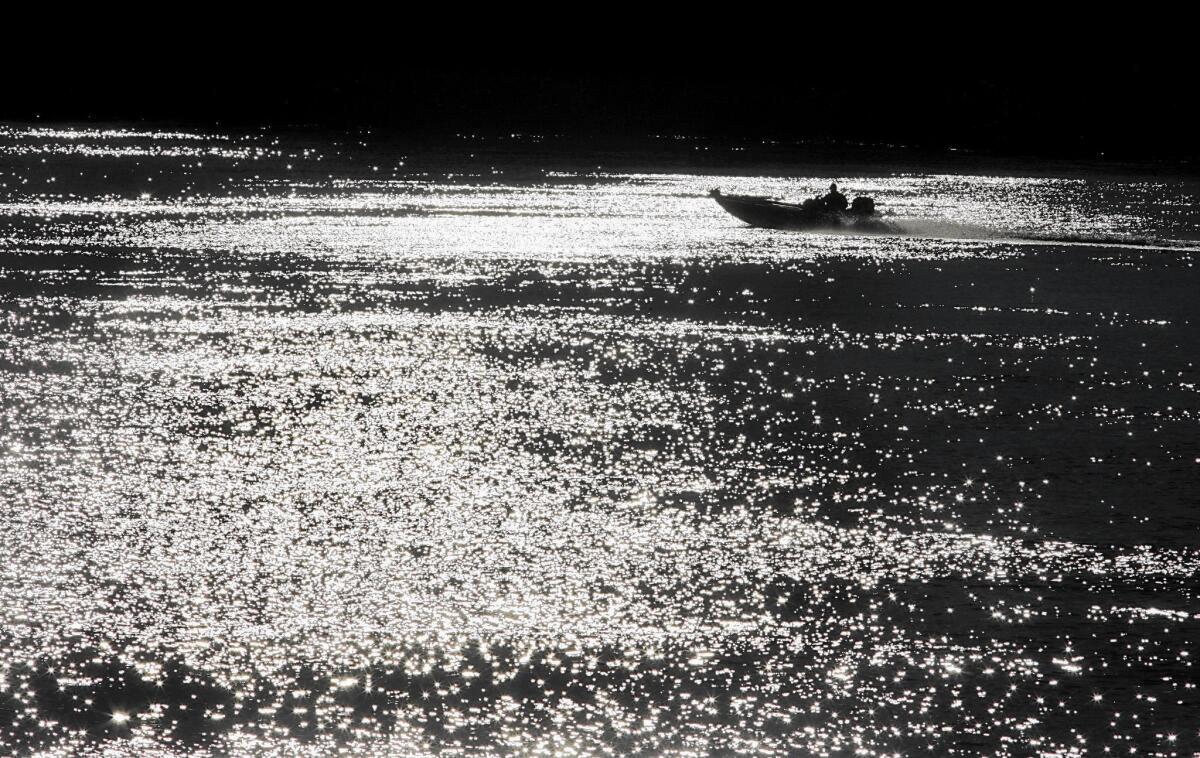Federal appeals court backs restrictions on delta water deliveries

- Share via
Ruling that water from the Sacramento-San Joaquin River Delta is important not just for people but also for the fish that swim in it, a federal appeals court on Monday backed environmental restrictions on deliveries to urban Southern California and San Joaquin Valley agriculture.
A panel of the U.S. 9th Circuit Court of Appeals reversed most of a lower court ruling in a long-running legal battle over endangered fish protections in the delta, the hub of California’s water system.
The appeals decision was issued in one of two lawsuits filed by San Joaquin Valley irrigation districts — including the Westlands Water District — and the Metropolitan Water District of Southern California challenging federal protections that at times limit pumping from the delta to the big aqueduct systems that carry water south.
Though the water districts won at the U.S. District Court level in the two cases, the 9th Circuit has now unraveled both of those victories.
Monday’s decision upheld a set of environmental restrictions imposed in 2009 by the National Marine Fisheries Service to protect imperiled chinook salmon, steelhead and green sturgeon that migrate through the delta, along with a small population of orca whales that prey on salmon.
Noting that “people need water, but so do fish,” the 80-page opinion echoed another 9th Circuit decision issued this year that affirmed delta smelt protections adopted by the U.S. Fish and Wildlife Service.
As in the smelt case, the appeals judges concluded that U.S. District Judge Oliver Wanger overstepped legal bounds when he relied on thousands of pages of outside scientific opinion to invalidate many of the environmental restrictions.
Judge Richard Tallman, who wrote the opinion, said the three-judge panel agreed that the fisheries service “used the best scientific data available, even if that science was not always perfect.”
Major urban and farm water districts that get supplies from the delta have for years attacked the salmon and smelt protections in the courts and the political arena. The water contractors argue that federal fishery agencies focus too much on the effects of the delta pumping operations while ignoring other harms to native species, such as pollution and predation by non-native fish.
Bob Muir, spokesman for the Metropolitan Water District of Southern California, which imports delta water to the Southland, said Monday’s decision was not surprising, given the ruling in the smelt case.
Metropolitan and a number of other agencies have petitioned the U.S. Supreme Court to review the smelt decision. The high court in recent years has declined to take up other California water cases. A decision on the request is expected next month.
The appeals opinion “is likely to be the last word. But you never know,” said Drew Caputo, vice president of litigation at Earthjustice, which represented fishing and environmental groups that intervened in the salmon case.
Caputo called Monday’s opinion “a pretty resounding affirmation by the judges that the [fisheries service] did the right thing when it protected the salmon.”
In a departure from the detailed parsing of environmental law that made up most of the opinion, Tallman opened with a passage from “East of Eden,” John Steinbeck’s novel about California’s Salinas Valley: “And then the dry years would come … The land dried up and the grasses headed out miserably a few inches high and great bare scabby places appeared in the valley.”
“The same can be said for California’s Central Valley,” Tallman wrote, adding that the salmon case was about competing demands for delta water.
“This water is essential to the continuing vitality of agriculture in the Central Valley, and some 25 million Californians depend on it for daily living. But that water is also an important habitat for thousands of river and anadromous fish, many of which are endangered.”
Twitter: @boxall







